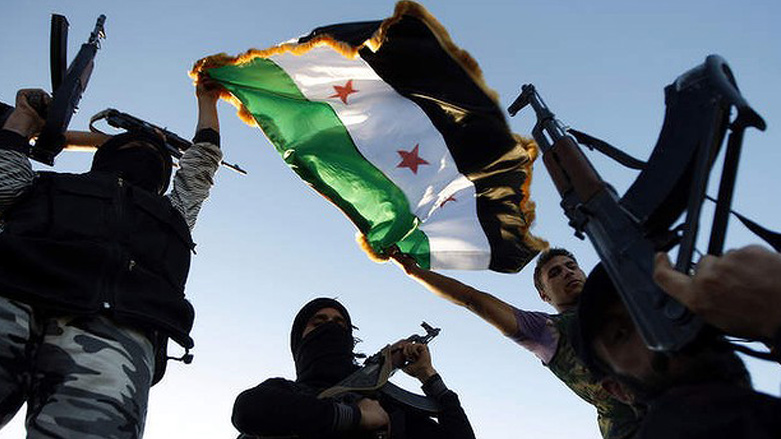No heavy weapon withdrawal from demilitarized zone in Idlib yet

ERBIL (Kurdistan 24) – Rebel groups deny reports they have withdrawn forces and arms two weeks after Turkey and Russia agreed to create a demilitarized zone and remove heavy weapons from Idlib.
Reuters on Sunday reported that the Failaq al-Sham faction was withdrawing its heavy weapons and forces from the demilitarized zone. Only one day later, Reuters quoted the same group denying the news.
“I talked to many field activists, and they told me that the Reuters report is untrue. There is no withdrawing [of forces] and no taking away heavy weapons,” Mahmoud Abbi, a spokesperson of the Free Idlib police, told Kurdistan 24 on Sunday.
He added that most of the rebel groups, “would not agree to withdraw their heavy weapons, and I think Turkey would not as well.”
Russian president Vladimir Putin, in a joint press conference with his Turkish counterpart, Recep Tayyip Erdogan, on Sep. 17 said that by October 15, a demilitarized zone would be created in Idlib to prevent further conflict.
“In our meeting, we have decided to create, by Oct. 15 of this year, a demilitarized zone of 15 to 20 kilometers between the territories controlled by the militants and the territories controlled by the Syrian government,” he said.
Idlib, a strategic governorate that borders Turkey and hosts over two million people, is the last major territory still in militant hands.
A part of it is held by the Hay’at Tahrir al-Sham (HTS), formerly known as the Nusra Front, which the United States links to al-Qaeda, while rebels backed by Turkey control another part.
Now, Russia and Turkey say they will work to remove the HTS from Idlib.
According to Nicholas A. Heras, a Middle East security analyst at the Washington-based Center for a New American Security, the Russians cleverly put the Syrian armed opposition to the test with the deal.
“In effect, the Russians told the armed opposition that they must surrender their strength in defense against Assad, by removing their heavy weapons, and trust that Turkey will use its military to be their buffer. It places a burden on Turkey, and forces the armed opposition to effectively surrender their primary goal, which is to overthrow Assad by force,” he told Kurdistan 24.
“The armed opposition in Idlib does not want to give up this goal, which makes the deal an expensive one for them,” he added.
However, Elizabeth Tsurkov, a Research Fellow who specializes in Syria at the Forum for Regional Thinking, an Israeli think-tank, says the opposition factions might not have much choice and be forced to remove heavy weapons from the demilitarized zone.
“The rebels have no choice at this point other than trusting the Turks to ensure Idlib’s security. It is the only ally they have left. The withdrawal of heavy weapons from the demilitarized zone is highly controversial but less so than the rumored deployment of Russian forces there,” she told Kurdistan 24.
“I assess that if the establishment of the demilitarized will only entail withdrawal of heavy weapons and opening traffic along international highways, the opposition will comply, despite their deep reservations,” she concluded.
Editing by Nadia Riva
